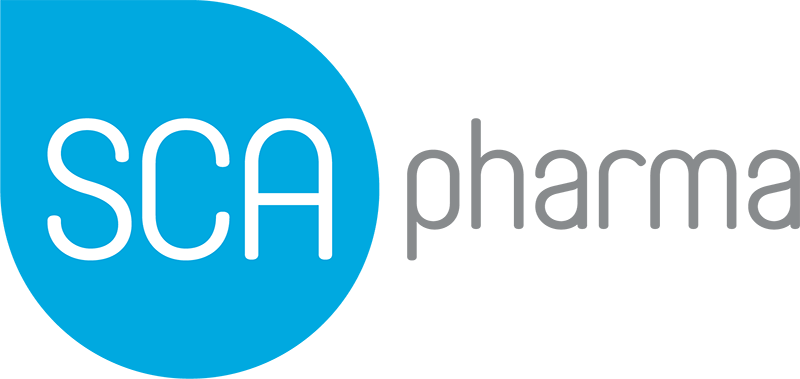Utilizing an outsourcing organization helps meet the demands placed on hospitals and outpatient facilities to ensure patients receive their medications on time and as prescribed.
By Brenden Roche, Senior Marketing Coordinator; SCA Pharmaceuticals
Recent trends have shown the vast migration from inpatient facilities such as hospitals to outpatient facilities. In fact, there are now nearly as many surgeries performed outside of the hospital as there are inside the hospital with some of the more recent numbers stating 51.1% for inpatient vs. 48.9% outpatient, and these are only continuing to increase. This inherently makes sense as there is a lower cost associated with performing outpatient procedures vs. inpatient procedures.
However, these two types of facilities still comprise almost all surgical procedures, and it’s vitally important to have synergy between the two. There is ample crossover between surgeons and anesthesiologists within these two types of facilities, and they want to use the same products and processes in the outpatient setting as they do in the inpatient setting to ensure consistent, quality care.
But, this is not their only concern. Both hospitals and outpatient facilities face numerous challenges providing high quality medication and care to patients. Some of the most common issues for these healthcare providers include:
- Access to the right medication when it is needed
- Reducing drug waste
- Limiting the impact of drug shortages
- Staying compliant with the latest regulatory standards and updated procedures
- Standardizing medications and concentrations
- Reducing the risk of human error
These challenges can be extremely difficult. Drug shortages are one of the largest concerns for healthcare providers, especially in the outpatient setting. Traditionally, drug companies have stocked hospitals first, especially with drugs on shortage, and outpatient facilities sometimes were left without, leaving them to either locate alternative drugs or postpone procedures; neither obviously is ideal.
Other times, a single-use vial might contain more drug than is necessary for a single patient, leaving the outpatient facility to dispose of the extra drug, causing waste, or reuse the vial, risking sterility breaches and non-compliance.
Ready-to-use compounded sterile products can help overcome many of these challenges, but most healthcare facilities do not have the capacity or ability to produce the compounds needed in the quantities and frequencies required, nor do they have a highly-skilled staff to keep up with the stringent regulations that apply to compounded sterile products. In these cases, it makes the most sense to outsource.
There are several outsourcing facilities with the capacity and the inclination to produce these ready-to-use products that greatly aid healthcare facilities with their most important tasks, the care and safety of their patients. One such facility, SCA Pharmaceuticals, was among the first entities to voluntarily register with the U.S. Food and Drug Administration as a Human Drug Compounding Outsourcing Facility under section 503B of the Federal Food, Drug and Cosmetic Act.
With production facilities in Little Rock, AR and Windsor, CT, SCA works with hospitals and outpatient facilities to promote patient safety through quality while helping to ease the supply chain burden to ensure these facilities have the drugs they need, when they need them.
Since the passage of the Drug Quality and Security Act in November 2013, the FDA has been charged with federal oversight of sterile compounding facilities and conducts rigorous inspections that observe every phase of the operation. This ensures that compliant outsourcing facilities are creating products of only the highest quality.
SCA Pharmaceuticals exceeds these regulations and was one of the first 503B companies to conduct sterility and endotoxin testing on every finished product lot. SCA never ships finished products until testing results are reviewed by a quality team, and Environmental Monitoring is also an important part of product release criteria. In addition, SCA utilizes rapid sterility testing for all sterile aqueous solutions using Scan RDI (Rapid Microbiological Technology). This process, which meets the requirements of both USP <71> and <1223> utilizes fluorescent labeling & laser scanning for the detection of all viable microorganisms.
SCA’s labeling includes numerous 503B compliant safety features to help healthcare facilities such as color-coding and tall-man lettering per ASTM (American Society for Testing and Materials) and ISMP (Institute for Safe Medication Practices) guidelines and barcoding to help reduce medication errors. The labels and barcodes make the contents clear to help minimize the likelihood of the wrong drug or dosage being administered. SCA also produces variable coloring options on certain products to further help eliminate human error.
In addition, due to the rigorous testing, SCA offers extended dating beyond what most hospitals would be able to produce with in-house pharmacies. This helps reduce drug waste due to expiration.
Moreover, SCA prepares the same drug in various quantities. For example, a syringe that is available in 10 mL is also available in two doses of 5 mL for instances when a patient does not require a full 10 mL. This further helps reduce waste.
The added value of working with an outsourcing facility includes:
- Improving reliability of drug supply
- Helping reduce drug waste
- Minimizing medication errors
- Increasing compliance with drug preparation regulations
- Reducing labor burden associated with drug prep, among others
Utilizing an outsourcing organization such as SCA Pharmaceuticals, helps meet the demands placed on hospitals and outpatient facilities to ensure patients receive their medications on time and as prescribed. It is SCA’s mission to uphold core values of excellence in providing specialty sterile compounded pharmaceuticals that are backed by quality, safety, integrity, accountability, and outstanding service.






